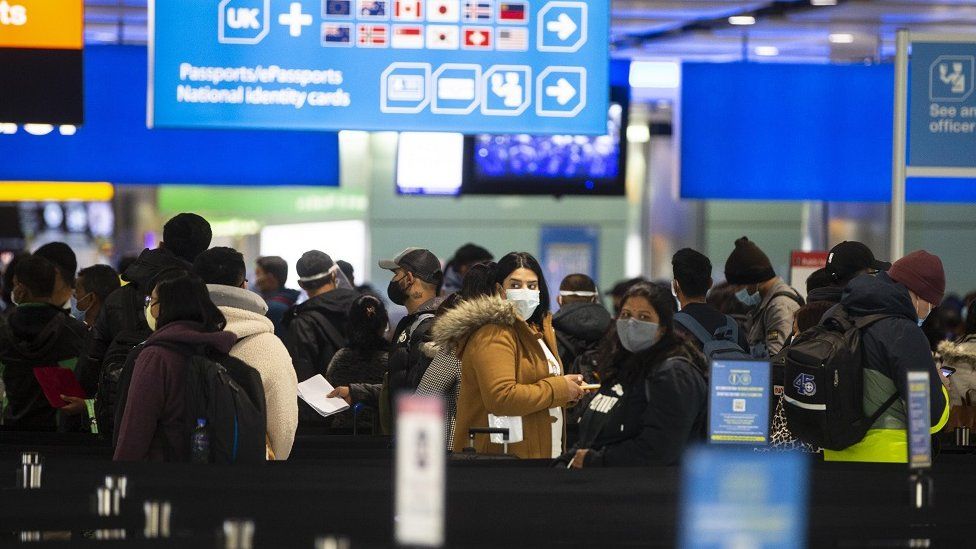ARTICLE AD BOX
 Image source, Getty Images
Image source, Getty Images
By Ione Wells
Political correspondent, BBC News
The government is to discuss contingency plans for upcoming strikes, including using the military and civil servants to cover Border Force staff, at an emergency Cobra meeting later.
The armed forces will also be deployed to hospital trusts ahead of an ambulance strike, the government says.
But industrial action is still expected to cause major disruption.
Cobra is an emergency response committee made up of ministers, civil servants and others.
It comes amid a wave of strikes over pay this month from nurses, paramedics, rail workers, and Border Force staff.
Cabinet Office minister Oliver Dowden, who will chair the meeting on Monday, has urged unions to call off the "damaging" strikes.
"The stance the unions have taken will cause disruption for millions of hardworking people over the coming weeks," he said.
"The government will do all it can to mitigate the impact of this action, but the only way to stop the disruption completely is for union bosses to get back round the table and call off these damaging strikes.
"I will be chairing a series of Cobra meetings over the coming weeks to ensure our plans are as robust as possible, and that disruption is kept to a minimum."
Border Force officers employed by the Home Office are set to walk out at Gatwick, Heathrow, Manchester, Birmingham and Cardiff airports for eight days from 23 December to New Year's Eve.
Members of The Public and Commercial Services Union (PCS) - who represent 75% of all passport control staff - voted to take action in support of a 10% pay rise which they say will help border workers who are "struggling with the cost-of-living crisis".
Some military personnel are already being trained up as part of contingency planning in a bid to avoid widespread travel disruption at Christmas.
While armed forces will be sent to hospital trusts to familiarise themselves with vehicles ahead of an ambulance worker strike on 21 December.
Paramedics and control room staff will walk out in coordinated strike action by the three main ambulance unions - Unison, GMB and Unite - in a dispute over pay. The action will affect non-life threatening calls only.
But some of the unions have said instead of meeting each other, ministers should meet them and negotiate pay - arguing wage offers are not enough to keep up with the rising cost of living.
Unison's head of health Sara Gorton said: "The wage rise given to health workers this year simply hasn't been enough to stop staff leaving in droves. Without enough employees in the NHS, patients will go on waiting too long for ambulances and for treatment to start."
"Instead of putting plans in place for the strike days, ministers should be concentrating all their efforts on ending the disputes," she added.

 1 year ago
14
1 year ago
14








 English (US)
English (US)